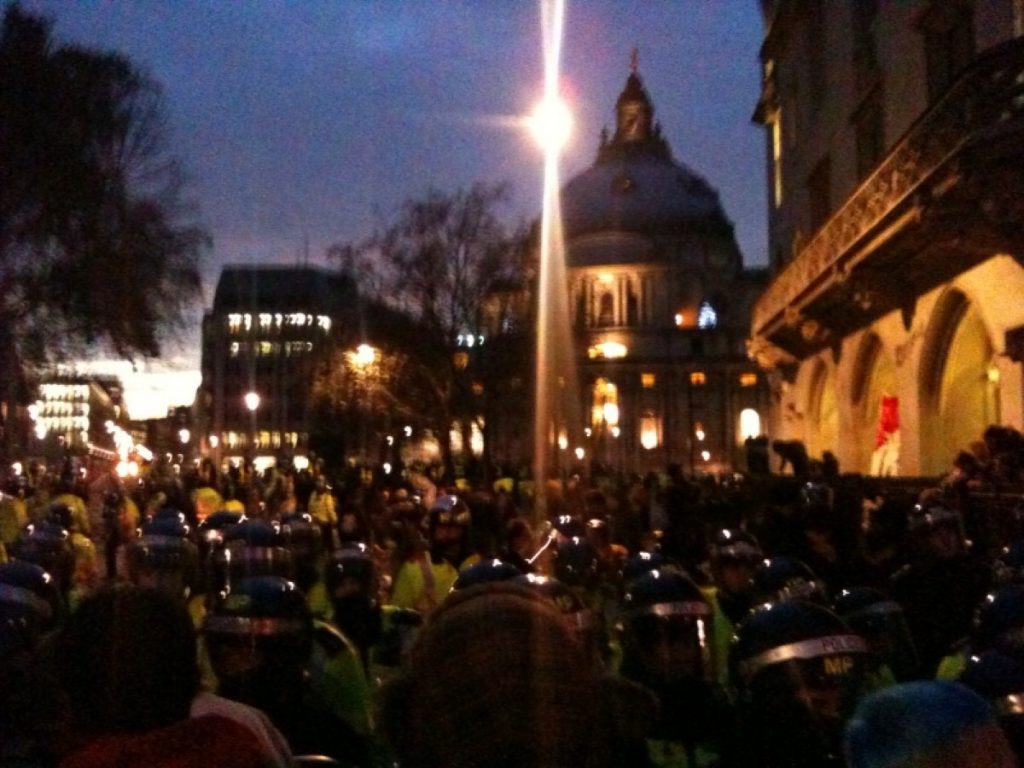Coalition defeated over ‘annoyance’ clampdown
Peers have handed the government a big defeat in the Lords over plans to make injunctions against being 'annoying' legal.
The upper chamber voted 306-178 against the proposed injunctions to prevent nuisance and annoyance (Ipnas), which would be easier to implement and be defined more broadly than antisocial behaviour orders (Asbos).
It followed a debate of over two hours in which peers from all sides of the House condemned the chilling effect the reform would be likely to have on all kinds of 'annoying' behaviour, from carol-singing and street preaching to bell-ringing and political protests.
Whereas an Asbo can only be granted if a person or group is causing or threatening to cause "harassment, alarm or distress" to someone else, an Ipna could be approved merely if a judge believes the behaviour in question is "capable of causing nuisance or annoyance to any person".


Crossbencher Lord Dear, the former head of West Midlands police, turned down a last-minute government offer for more talks on the issue and pressed it to a vote rather than relying on "pious hopes" of a breakthrough.
Opinion could have been swayed by a mistake from Lord Faulks, the Tory peer widely expected to shortly become a minister who was asked to give an example of the sort of behaviour which might be captured by the bill.
He described a group of youths who repeatedly gathered at a specific location, smoking cannabis and playing loud music in a way representing "a day-by-day harassment of individuals".
That triggered consternation in the chamber as peers challenged him over the word 'harassment' – a higher bar than the 'nuisance or annoyance' threshold he was arguing in favour of.
"I find it difficult to accept a Conservative-led government is prepared to introduce this lower threshold in the bill," Tory backbencher Patrick Cormack said.
"We are sinking to a lower threshold and in the process many people may have their civil liberties taken away from them."
Lord Morris of Aberavon said the 'nuisance or annoyance' definition was so elastic that "if applied widely… would catch all sorts of people who really should not be before the courts".
Peers repeatedly quoted Lord Justice Sedley's ruling in a 1997 high court case, when he declared: "Freedom to only speak inoffensively is not worth having."
The government had made a minor concession over defining what could be defined as being annoying before today's vote.
Instead of applying to any behaviour which is "capable of causing" nuisance or annoyance, injunctions would only be eligible to behaviour "that could reasonably be expected to cause" annoyance.
The shift was dismissed as "a little bit of window-dressing" by civil liberties group Liberty, which concluded "nothing substantial has changed".
Ministers made a second attempt to win over wavering peers by introducing a second concession this afternoon.
Whereas a judge must be satisfied an Asbo is "necessary", the government had originally proposed an Ipna need only be granted if it is "just and convenient" to do so.
Today ministers offered an amendment proposing that an Ipna only be granted if it targets conduct which could be "reasonably expected to cause nuisance or annoyance".
Lord Dear had earlier told peers this concession was "vague and imprecise" and that "practitioners will leave it to the courts to decide, and this will introduce a chilling effect".
His claim was backed up by Lord Blair, the former Metropolitan police commissioner, who insisted what mattered was "of how this is going to be interpreted on the streets". He added: "This is a piece of absolutely awful legislation."
"The danger in this bill is that it potentially empowers state interference against annoying activities in the face of shockingly low safeguards," former director of public prosecutions Ken Macdonald, a Liberal Democrat peer, had said earlier.
Campaign groups Liberty, Justice and a coalition of ethical groups – from the Christian Institute to the National Secular Society – had also spoken out against the injunctions.
Parliament's joint committee on human rights has condemned the proposed changes, on the grounds that the 'just and convenient' test is lower than the 'necessity' test required under human rights law.
The government responded to its report by arguing the meaning of 'nuisance and annoyance' is "well-known in the county court and is supported by 15 years of case law in our civil legal system".
Officials rejected the claim that there is an issue of legal certainty over the definition – and plan to publish guidance setting out examples of the prohibitions and positive requirements which could be included in an injunction.
Following today's defeat the issue will return to the Commons – leaving ministers with the difficult dilemma of choosing whether to fight the battle over freedom of speech once again.

